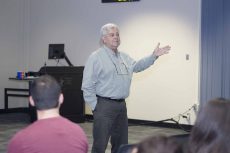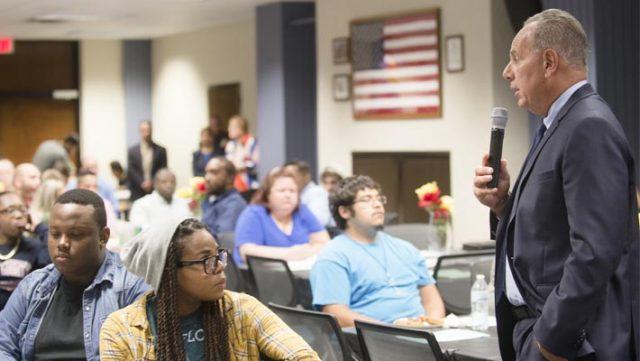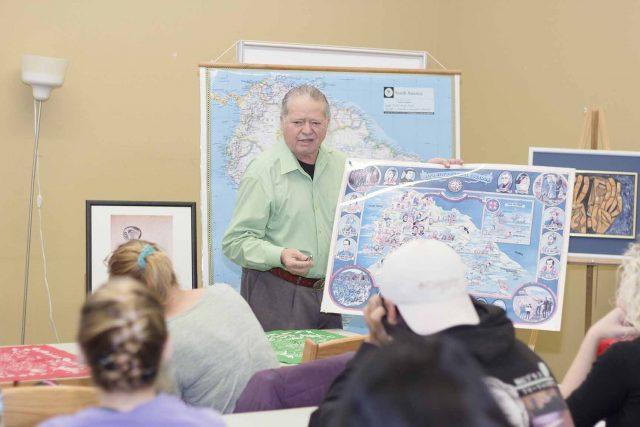By Jason Middlebrooks/ reporter

Bogdan Sierra Miranda/The Collegian
What the Cubans want from the United States is respect, a former Cuban ambassador said Sept. 26.
As part of Hispanic Heritage Month, TCC invited former Cuban ambassador and diplomat Carlos Alzugary to visit several campuses to discuss the changing relations between Cuba and the U.S. Early in the NE presentation, he highlighted the day President Barack Obama announced the U.S. would begin improving its relationship with Cuba.
“The key date to remember is Dec. 17, 2014. Something happened that was quite unexpected. Before Dec. 17, 2014, it was a very disappointing job. A couple of times, I have decided I wouldn’t do it anymore,” he said, referring to President Bill Clinton’s era.
In 1996, Clinton signed the Helms-Barton Act in response to two American civilian planes being shot down by Cuban forces. The act strengthened the embargo against Cuba. Relations were strained even more during the Bush administration, Alzugary said.
“The Bush years were horrible in a sense,” he said. “The Bush administration established the Commission to a Free Cuba. In the State Department, they had a job, a position for a coordinator of the Cuban transition. It seemed to Cuba that the United States was preparing to invade Cuba.”
Through the embargo, the United States did not recognize the legitimacy of the Cuban government.
“Back in 1989, James Baker, the secretary of state for [President] George Bush Sr., said that America will never talk to Cuba in anything that is not relating to U.S. national security or anything that will benefit or legitimize the Cuban government,” Alzugary said.
Cuba survived all the adversity it faced, Alzugary said, including the Soviet Union crisis, the embargo and efforts by the U.S. to delegitimize the Cuban government. It survived everything. Cuba has been going through changes within its government since 2006 when Cuban President Fidel Castro became ill and relinquished his duties to his brother, Raul Castro.
The idea to approach Cuba with the intent of changing relations to the point that U.S. citizens could travel freely to Cuba began to arise. With better relations, it would be easier for the two countries to work together in investments and trade.
Alzugary acknowledged the counternarcotics agreement between the two nations is proof they can work together successfully, calling the cooperation “second to none.”
Although the relationship has been good the last two years, the embargo remains a problem, Alzugary said. Besides the embargo stopping trading between the U.S. and Cuba, it also inhibits other countries trading with Cuba. Lifting the embargo would improve Cuba’s economy and the life of its residents.
“We are beginning a new era,” he said. “Hopefully, the new era will produce the normalization of relations between the United States and Cuba, and that normalization would be beneficial.”





























